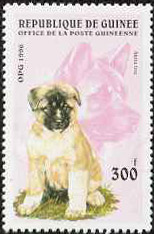
Dietary considerations in cardiac disease
Diet and heart disease in cats and dogs
source: Antonio Moneva-Jordan
In Practice vol 25 no 2, February 2003
starts p92, 6 pages long
Heart disease is a common problem in cats and dogs, and recent research has shown that diet is important for pets with heart problems. Congestive heart failure (CHF) can lead to cardiac cathexia, or muscle wasting, which also involves lack of appetite, poor digestion, and metabolic changes. It is less common in cats than in dogs.
Pets with cardiac cathexia need diets that tackle anorexia and that regulate cytokine production. Regulation of sodium is important, but pets may refuse to eat low sodium diets. Less restricted diets that are both digestible and palatable may be better for the pet than more restricted diets they will not eat. Changes in diet should take place over a period of four to five days. Sometimes pets can be persuaded to eat by warming their food, feeding by hand, and other tricks. Some pets may do well on well-balanced homemade diets, if they have dedicated owners. Cytokine reduction can help dogs with CHF to survive longer, and fish oil supplements can help with this. Obesity should be tackled as early as possible, since it makes pets more susceptible to heart trouble by overloading their hearts, pushing up blood pressure, and making them less inclined to take exercise. Weight reduction can help reverse this overloading.
Pets with congestive heart failure (CHF) tend to retain water, sodium and chloride, and are less able to excrete dietary sodium. Low sodium diets do not appear to help dogs with cardiac disease and no overt CHF, but excess sodium and chloride should be reduced once dogs show overt CHF. Moderate restriction tends to be recommended at first, and this can involve giving pets senior foods, or foods for pets with kidney disease. All non-prescription commercial foods for cats and dogs have sodium chloride in excess of animals' requirements, and this is especially true for canned foods. Moving pets to dried rather than canned food is one way to reduce the amount of sodium they eat. Reducing sodium to too low a level could, however, worsen a pet's condition. Lack of potassium can also be a problem for pets given diuretics, and this especially applies to cats, and to pets suffering from loss of appetite. Magnesium deficiency has also been linked to treatment with diuretics.
Another dietary link to heart disease is lack of taurine, which especially affects cats. Most commercial cat foods now contain taurine, after it was discovered that low taurine levels are linked to feline cardiomyopathy. Taurine may also benefit humans, rabbits and ferrets . Taurine deficiency is a possibility for any cat with myocardial failure. Cats most likely to suffer taurine deficiency are those fed on cereal-based diets, dog food, vegetarian diets, or any other non-traditional diet. Taurine levels can be checked using blood tests, and taurine supplements given, as well as diets with more taurine. Some breeds of dogs may also suffer from taurine deficiency leading to dilated cardiomyopathy (DCM), and this includes golden retrievers, and some breeds given low protein diets to tackle bladder stones.
Carnitine deficiency has also been linked to heart disease in some dog breeds, as well as turkeys, hamsters and humans. Some dogs may benefit from carnitine supplements, though it is difficult to identify which dogs might benefit. Carnitine seems to have few side effects, so it may be prescribed in case it helps, but it is expensive.
Omega-3 fatty acids found in sea foods such as fish oils may help humans with heart disease, and reduce tumour necrosis factor in animals, including humans. Studies have shown beneficial effects when fish oil has been given to dogs with CHF and DCM.
Foods and drugs can interact in a number of ways, for example, frusemide therapy can lead to water-soluble vitamins being lost over the long term. Pets receiving diuretics for long periods need to have vitamin supplements, or vitamin-rich foods, to take this into account. Low-sodium diets combined with diuretics and angiotensin-converting enzymes (ACE) inhibitors can lead to kidney trouble, and affected pets can be treated by reducing their drug intake, or increasing their sodium intake, or both. There are also some drugs that are less effective when taken with food, and this applies to digitoxin, digoxin, and pimobendan, so these drugs should not be fed at mealtimes. Treatment of pets with heart disease therefore needs to look both at diet and at medical treatment. There are no universal recommendations for levels of magnesium, potassium, sodium or chloride. Instead, individual pets should be monitored, and their kidney function, weight, condition, and electrolyte concentrations in the blood should be checked, with changes made in line with their individual needs. There is also a need for more research in this area.
DO,HD


